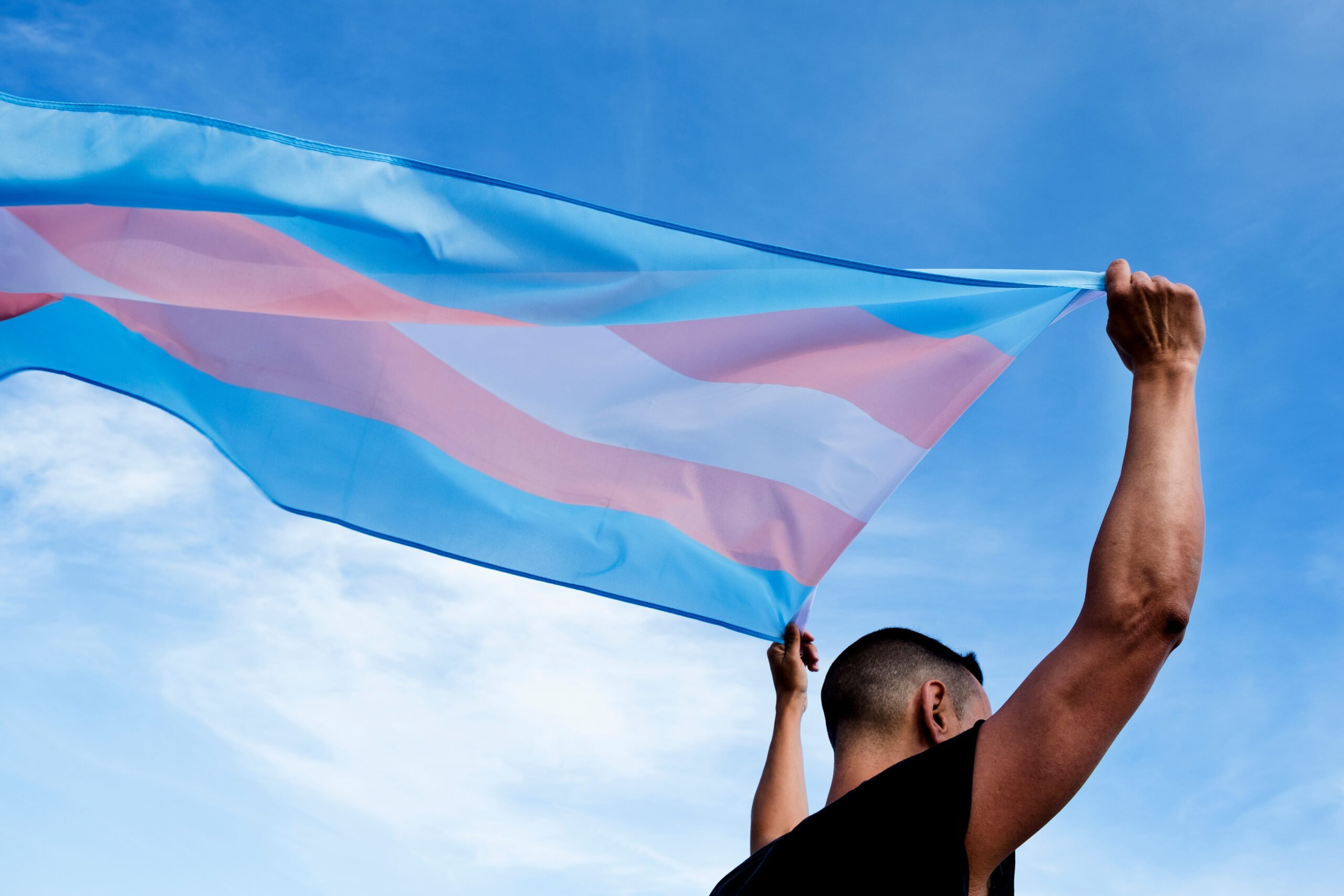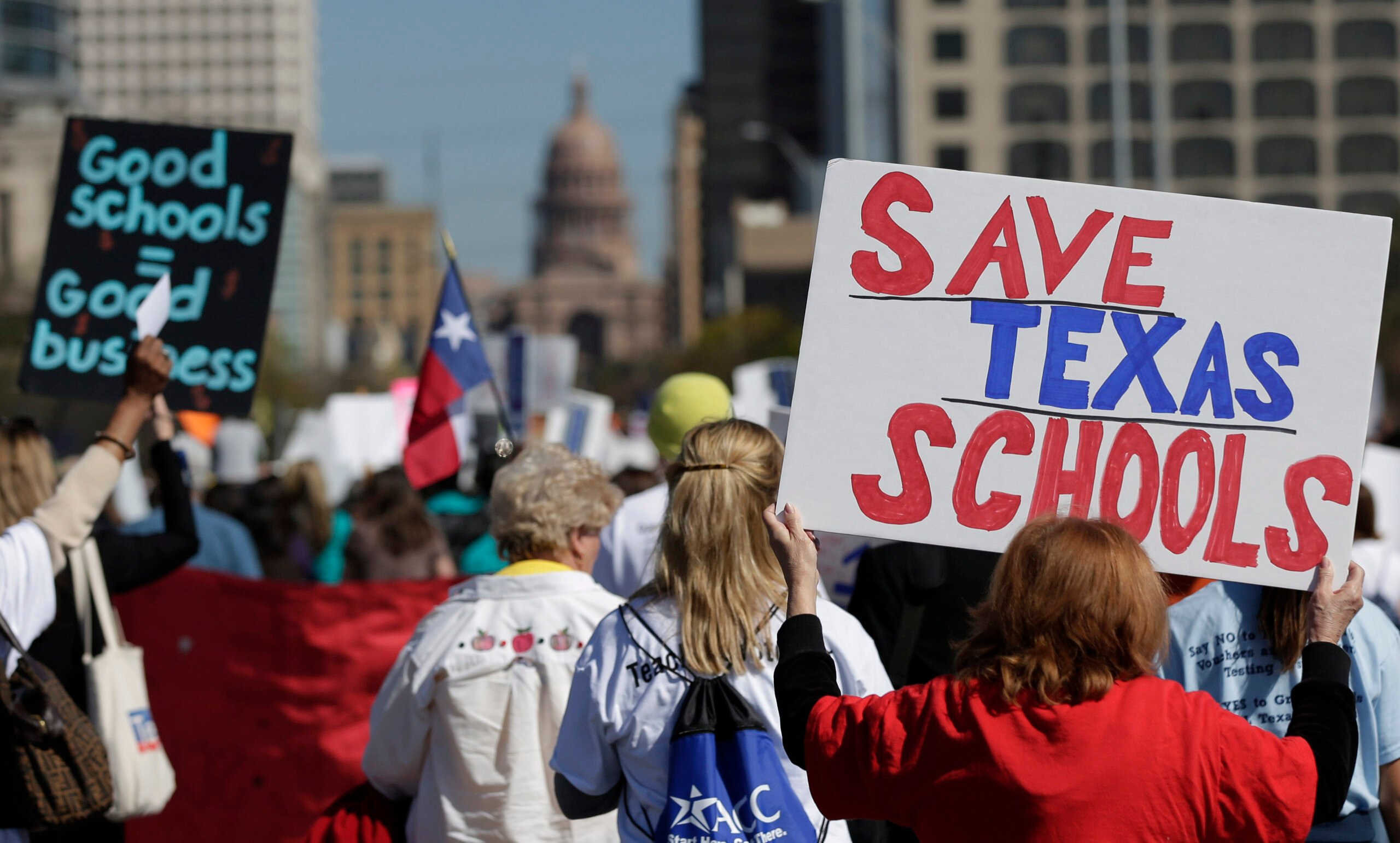
Texas Is Failing Queer Students
Some of the state’s most vulnerable young people are at risk during the 88th session of the Legislature.
Editor’s Note: The expressed opinion is of the author alone and not endorsed by WTAMU or the Texas A&M System.
My former superintendent, Dana West, taught me the most profound lesson in school leadership: “You don’t have to understand everything about a child, but you do have to do everything you can to respect and preserve the dignity and safety of every child.”
Texas Education Association data show that half of school districts lack mental health services. This shortfall disproportionately affects the most marginalized students, particularly those who are LGBTQ+.
Two recent surveys show that most LGBTQ+ students experience harassment and assault at school. More than half don’t report it because they don’t believe staff will take action. Research backs up the students’ perceptions: the majority said nothing happened when they reported bullying to school staff.
Alarmingly, the rates of anxiety and suicidal thoughts for LGBTQ+ students are trending upward. And for nearly 30,000 transgender students, the 88th Texas Legislature is toxic. Under a flood of three dozen anti-LGBTQ+ bills, parents and doctors of transgender children would be punished for providing them care, their existence would be erased from the curriculum, and their personhood banned from classroom discussion.
When kids can’t feel safe, seen, or valued, they don’t come to school. And when they don’t come to school, negative consequences compound and our broader society suffers. We lose the special talents and gifts each child learns to nurture throughout their schooling.
When kids can’t feel safe, seen, or valued, they don’t come to school. And when they don’t come to school, negative consequences compound and our society suffers.
If these bills become law, the youngest and most vulnerable Texans will face serious harm. They will undergo gender “tests” before they can use the restroom, play on a sports team, or participate in other school-related activities if these bills become law. Think back to your experiences with the school bathroom and imagine how those feelings intensify for transgender students.
Queer students already have difficulty advocating for themselves at school, and they count on caring adults in the building to help them. But, if hard-right conservatives get their way, educators would become a kind of identity police. Their instruction would include enforcing bans on topics related to gender or sexuality, according to an analysis from Equality Texas. Educators and districts would be required to disclose student information that could easily be used to out students and emphasize harmful effects for trans and nonbinary students. Penalties for noncompliance include stripping a teacher of certification and miring districts in civil litigation.
In my 20 years of experience in public education, I’ve seen how these laws create an environment of fear for students and teachers alike. Regardless of their identity, the rules convey that essential parts of you aren’t welcome at school—even if they’re welcomed from your straight counterparts.
As a queer professor and public school teacher, these issues are present for the students and for myself. I teach in graduate school and have taught in middle and high school. In this fraught climate, there are no guarantees that the same issues present in K-12 districts won’t expand into higher education.
Even though the U.S. Supreme Court recently affirmed Title VII protections for LGBTQ+ teachers, it’s a different story in Texas when you wonder what is allowable in your classroom. I’ve always behaved cautiously, never sharing my sexual orientation with my middle or high school students. Under advice from one of my education law professors, I didn’t even put a picture of my family on my desk. I worried about the safe space sticker on my door and the books with queer characters in my classroom library.
The proposed legislation is vague and needs specificity. For example, under HB 631, would I be allowed to mention my wife? What about books that feature gay families or have trans characters? Does that violate HB 1155, and will I be sued? In my view, terms in these bills like “age-appropriate” and “developmentally appropriate” are vague by design. For example, the definition and meaning of the term “age appropriate” in the legislation will be left up to the politicians in power.
No one really understands the law in these circumstances, but they know they’re under threat. The bills create a binary around curriculum and teaching materials, positioning them as “good” or “bad.” The implication is that there is a “good” gender identity and sexual orientation and a “bad” one.
Simplistic labels and extreme recommendations diffuse throughout the educational ecosystem, chilling everything. The uncertainty inherent in the proposed law puts pressure on educators—already facing unprecedented hostility from coordinated political attacks—to keep the walls and the shelves blank.
My heart is with teachers who are demoralized and struggling with impossible workloads. Many are quitting or retiring early to avoid hatred. Right-wing talking points that position teachers as agents of cultural decline are not only malicious, they’re absurd. Workloads for schools, particularly post-pandemic, have only grown, and most are focused on helping students regain academic losses.
Because the pandemic accelerated many districts’ plans to put their materials online, caregivers could search for titles deemed offensive by legislators. Partisan groups found an opportunity to organize on social media and work to manufacture a crisis that drives outrage, attention, and dollars to their cause.
There’s good faith conversations to be had with parents, school staff, and administration about age-appropriate and developmentally appropriate instruction, and I’ve been part of those. Whenever a parent has had an issue with something I’ve used in the classroom, we’ve been able to work together to find an appropriate substitute. But now, these kinds of conferences feel weaponized.
Governor Greg Abbott and Lieutenant Governor Dan Patrick are following the lead of Florida Governor Ron DeSantis by framing their anti-LGBTQ+ policies as “parents’ rights” and “getting back to basics.” Leaving aside the fact that Texas law already respects parents’ rights, I empathize with parents who are exhausted and burned out after pandemic shifts in remote learning, masking, and vaccinations.
Bad political actors have seized on this frustration. They use it to push agendas, sometimes wrapped in vile epithets about educators using books to “groom” children, sowing more anger, fear, and mistrust.
Legitimate policies and processes are already in place to protect children. At the federal level, Title IX prohibits sex-based discrimination and guarantees equal access for transgender students. Closer to home, the Texas Educator Code of Ethics details expectations for the adults in the building. Each school district has an explicit policy and process for challenged books. Genuine negotiation moves at the speed of trust and relationship.
Relationships are at the heart of everything we know about teaching and learning. To be able to learn, you need to feel accepted and protected. We understand that the affective domain, which includes everything we do to help children focus their emotional responses and self-manage, is vital. Reams of studies show that well-being and empathy are just as crucial for students as the “three Rs.”
Well-being and empathy are just as crucial for students as the “three Rs.”
It is incumbent upon the adults in the system to create cultures of care and belonging. For instance, a safe space sticker signals that we consider your needs, no matter who you are. I’ve had many conversations with students based on those stickers that had nothing to do with sexuality. Many students needed a dependable adult open to conversations about work, college, and extracurriculars.
These policies will do nothing to improve the lives of Texans, and will only serve to further marginalize and harm a vulnerable group of young people. We should be focused on creating policies that promote equity and justice for all Texans, regardless of their gender identity or any other characteristic.
As Texans, we have a responsibility to reject this trend, and to stand up for the values of equality and justice that exemplify the best of Texas and Texans.
In order to do that, we must reject these discriminatory policies, and instead work towards creating a society that is inclusive, compassionate, and just. That means rejecting fear and misinformation and embracing empathy and understanding. And it means standing up for what is right, even in the face of adversity.
So I urge my fellow Texans to speak out against these dangerous and discriminatory policies, and to stand with transgender youth in our state. Together, we can create a Texas that is truly inclusive and just, and that honors the dignity and worth of all of its citizens.



